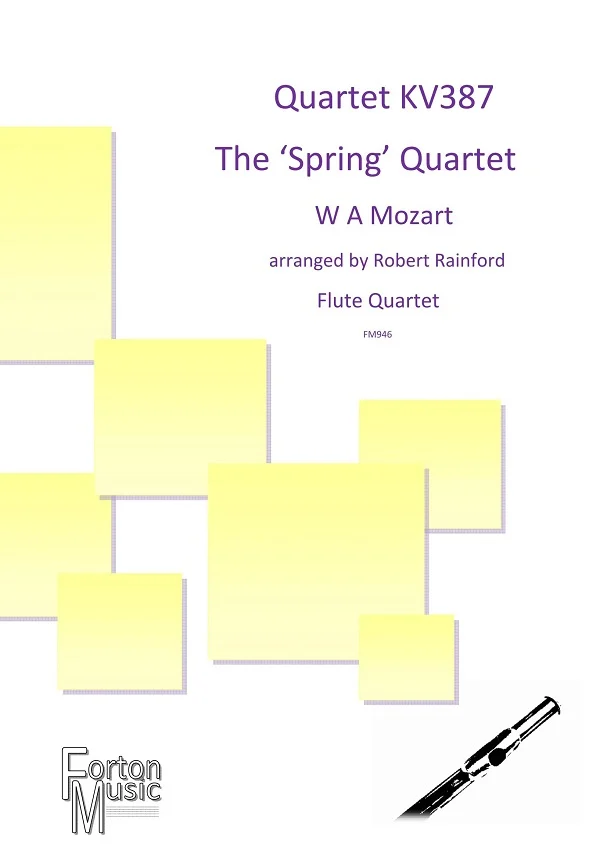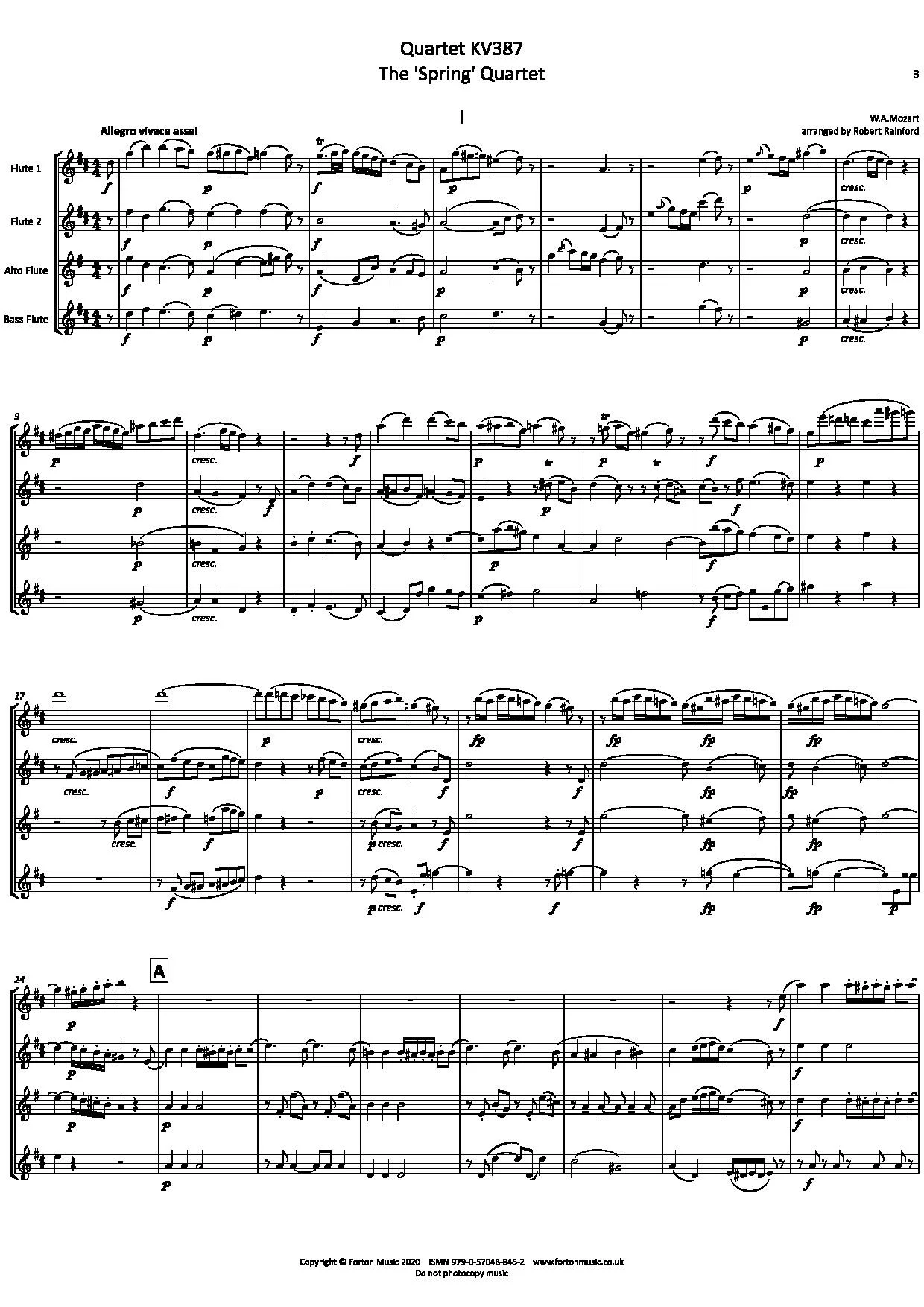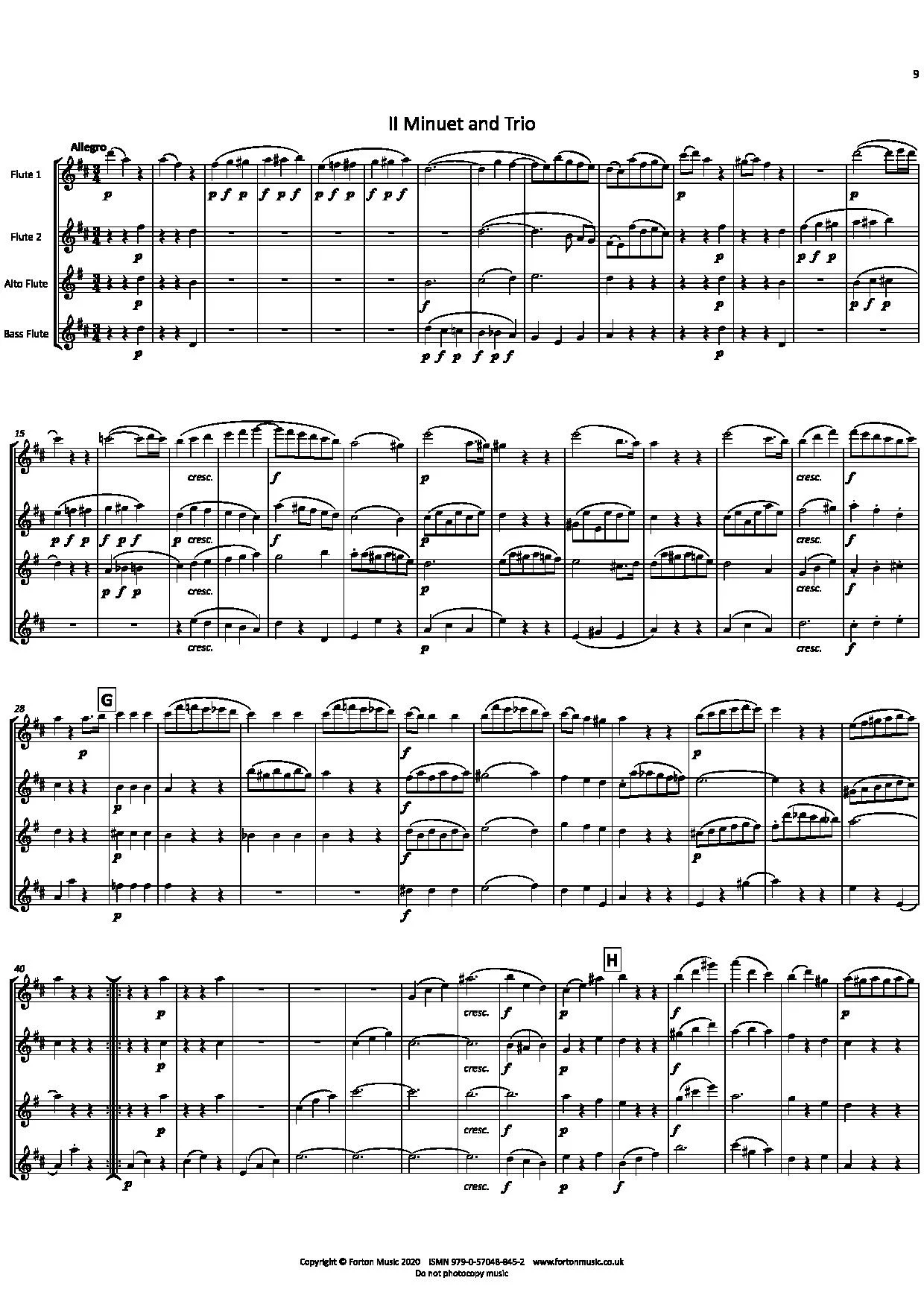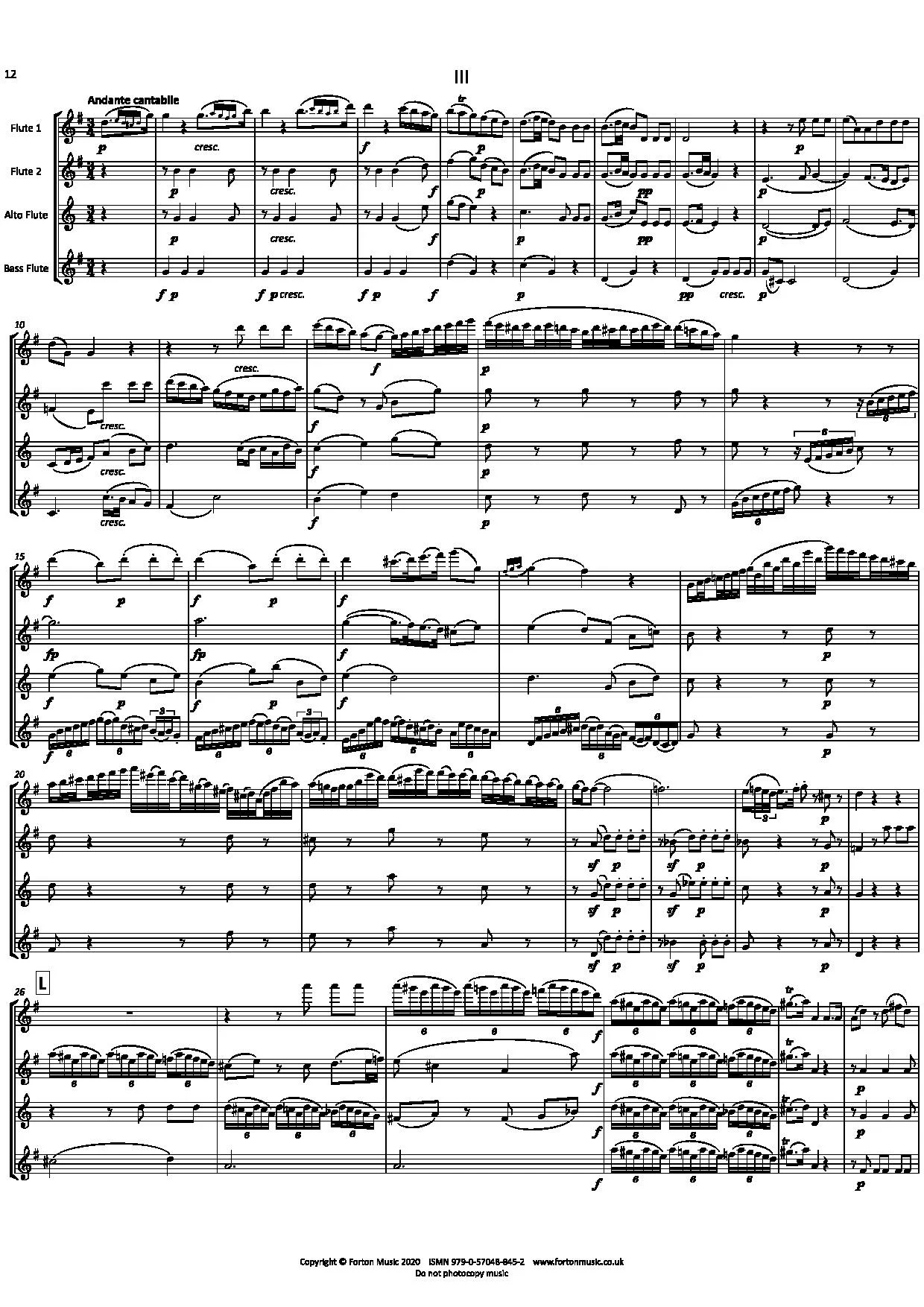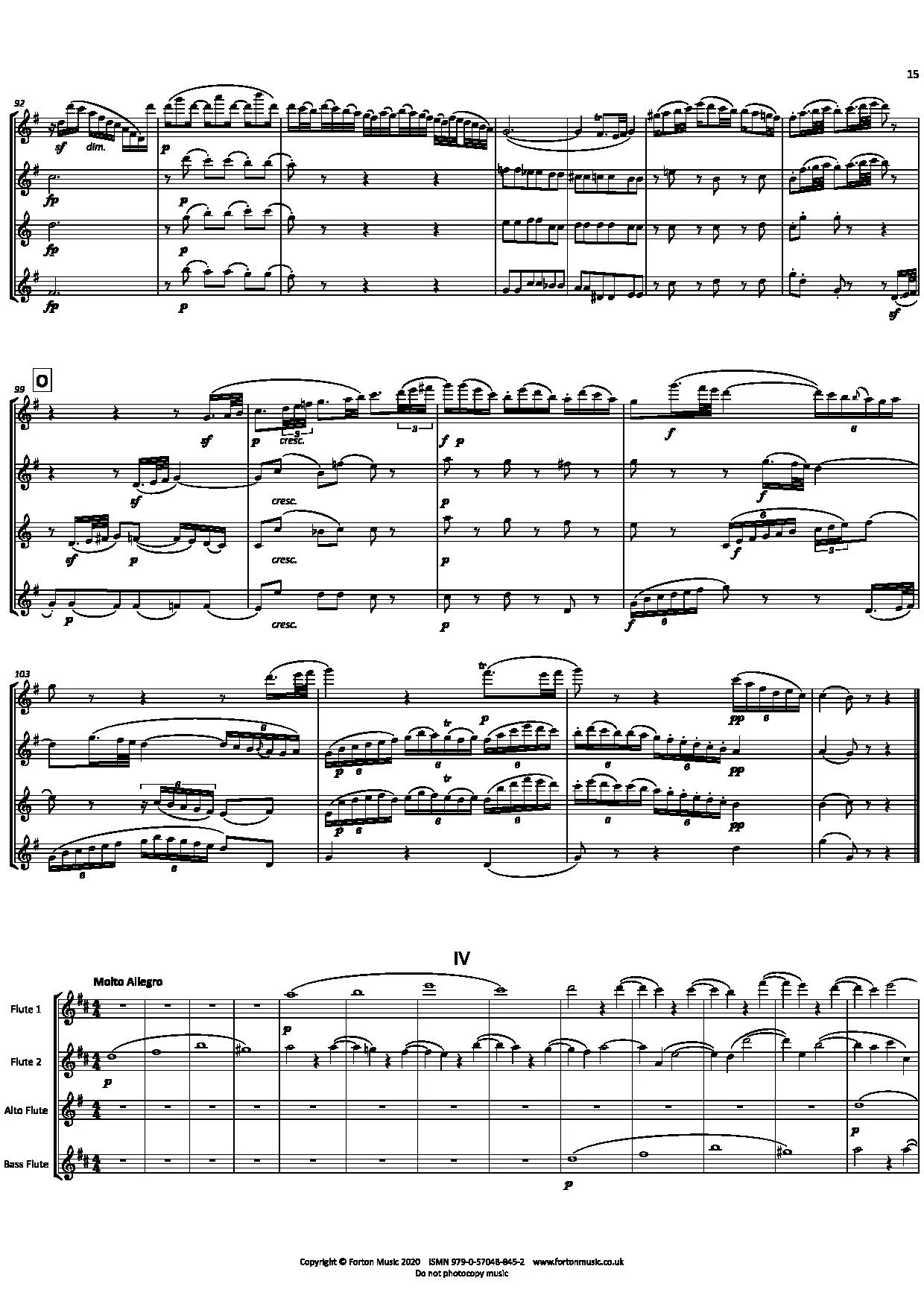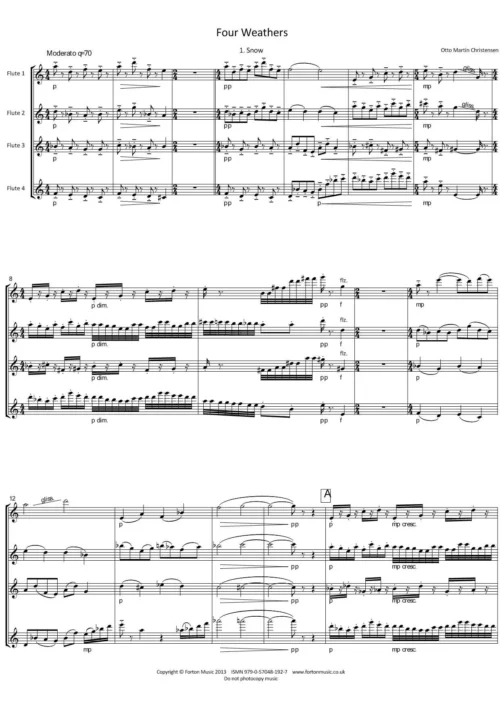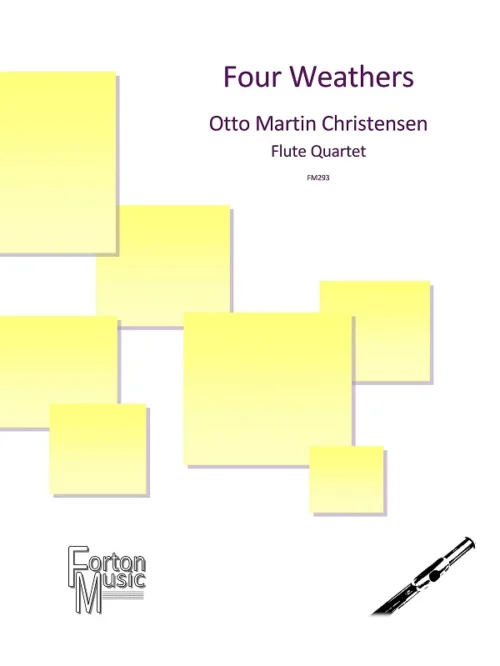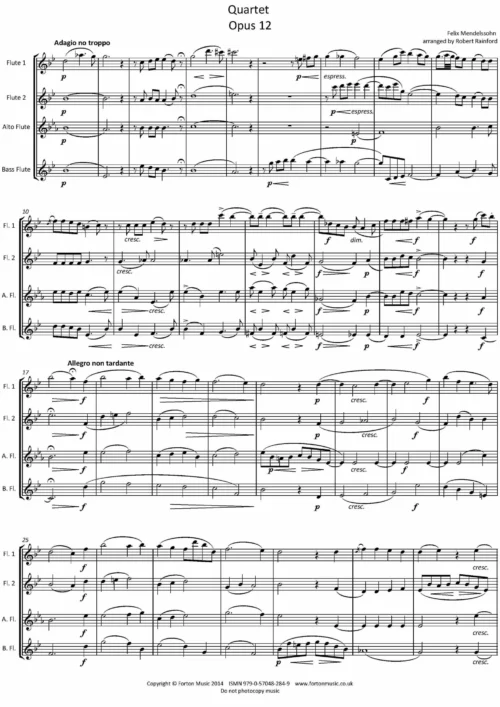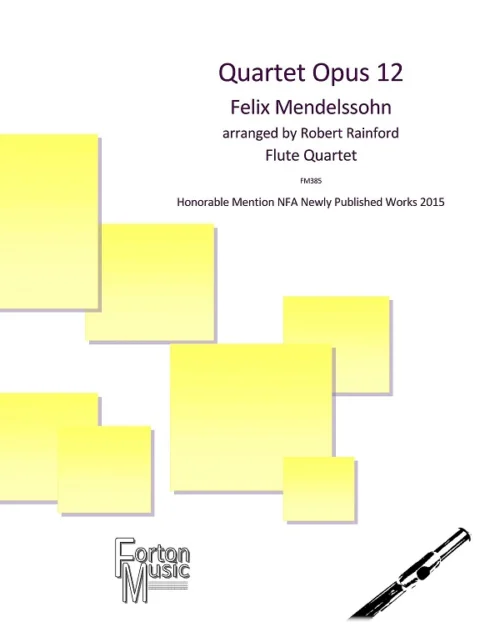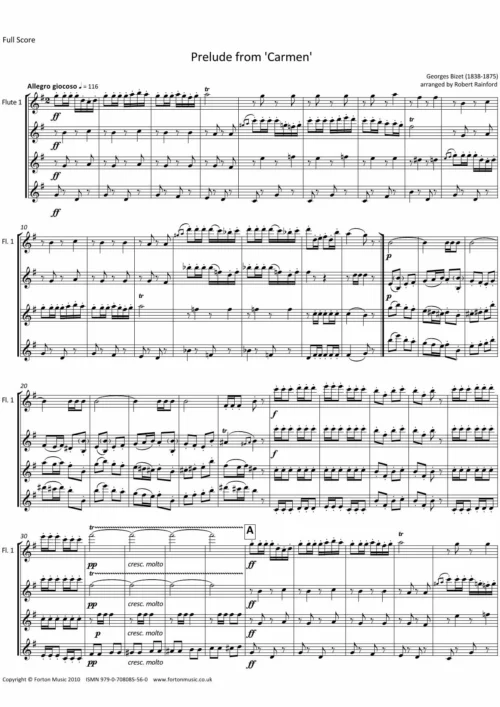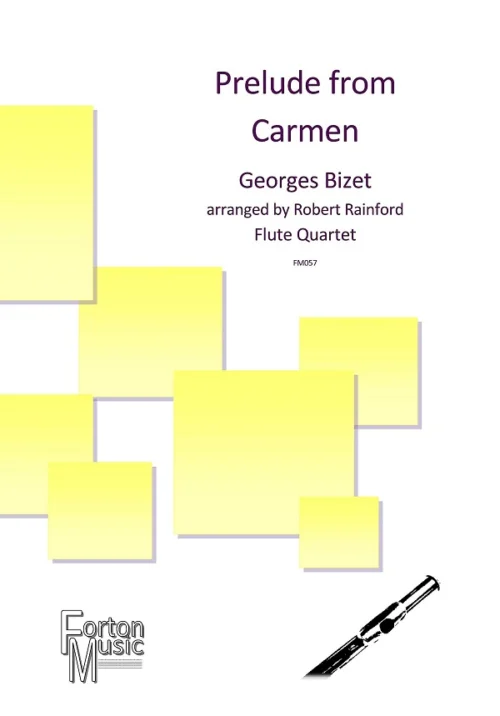Clink the links below to see and hear the movements in the quartet.
Spring Quartet
Price range: £16.50 through £22.00
Description
The String Quartet No. 14 in G major, K. 387, nicknamed the “Spring” quartet, was composed by Wolfgang Amadeus Mozart in 1782 while in Vienna. This is the first of the Haydn Quartets, a set of six string quartets he wrote during his first few years in Vienna in honor of the composer Joseph Haydn, who is generally viewed as the father of the string quartet form. The first movement contrasts fairly diatonic passages with chromatic runs. In contrast to the standard quartet form, which places the minuet as the 3rd movement, this quartet has the minuet as its 2nd movement (another example of this ordering is the String Quartet No. 17). It is a long minuet, written in the tonic key, with its chromatic fourths set apart by note-to-note dynamics changes. Its trio is in the tonic minor key and has a suitably darker and more unsettled mood. The minuet is followed by a slow movement in the subdominant, whose theme explores remote key areas. The fugal theme of four semibreves in the finale points ahead to the finale of Mozart’s “Jupiter” Symphony of 1788, a movement which also begins with four whole notes that are used in a fugal fashion, in the coda, and it also points back to Michael Haydn’s Symphony No. 23 in which the finale is also a fugato based on a theme of four semibreves.
Additional information
| composer | |
|---|---|
| arranger | Robert Rainford |
| instrumentation | |
| Select an Option | |
| skill-level |

